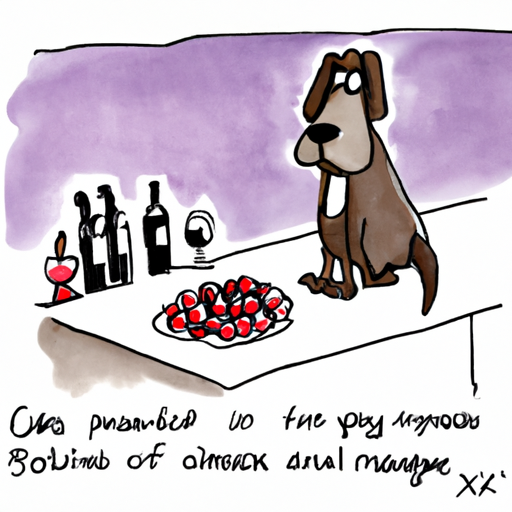As a caregiver, it’s your responsibility to ensure that your furry friend is safe, healthy, and well-fed. However, not all foods that are safe for humans are safe for dogs. Here are five categories of foods that could be toxic for your dog.
H2: Chocolate and Caffeine
You’ve probably heard that chocolate is dangerous for dogs, but do you know why? Chocolate contains theobromine and caffeine, both of which can stimulate a dog’s nervous system and speed up their heart rate, potentially leading to serious health issues.
Here’s a quick table to show the theobromine content in different types of chocolate:
| Type of Chocolate | Theobromine Content |
|---|---|
| Milk Chocolate | 44-58mg/oz |
| Dark Chocolate | 135-450mg/oz |
| Baker’s Chocolate | 390-450mg/oz |
H2: Grapes and Raisins
While they may seem harmless, grapes and raisins can cause sudden kidney failure in dogs. The exact substance that causes this reaction is not yet known, but even small amounts can be harmful. Always keep these foods out of your dog’s reach.
H2: Onions and Garlic
Onions, garlic, and other members of the allium family can cause damage to your dog’s red blood cells, leading to anemia. These foods are more dangerous to dogs when they are raw, but even cooked versions can be harmful in large quantities.
H2: Xylitol
Xylitol, a sugar substitute found in many sugar-free foods, can cause a rapid release of insulin in dogs, leading to hypoglycemia (low blood sugar). Common sources of xylitol include sugar-free gum, candy, and baked goods.
H2: Alcohol
Alcohol, and foods containing alcohol, can cause vomiting, diarrhea, decreased coordination, central nervous system depression, difficulty breathing, tremors, abnormal blood acidity, coma and even death in dogs.
FAQ
Q: Can dogs eat peanut butter?
A: Yes, but make sure it does not contain xylitol, a sugar substitute that can be toxic to dogs.
Q: Is cheese bad for dogs?
A: In small quantities, cheese is safe for most dogs to eat. However, some dogs may be lactose intolerant.
Q: Can dogs eat apples?
A: Yes, apples are safe for dogs to eat, but make sure to remove the seeds and core.
Q: What should I do if my dog eats something toxic?
A: If you suspect your dog has ingested a toxic substance, contact your vet immediately.
Remember, when it comes to your dog’s diet, it’s always better to be safe than sorry. Stick to foods that are known to be safe, and when in doubt, consult your vet.



